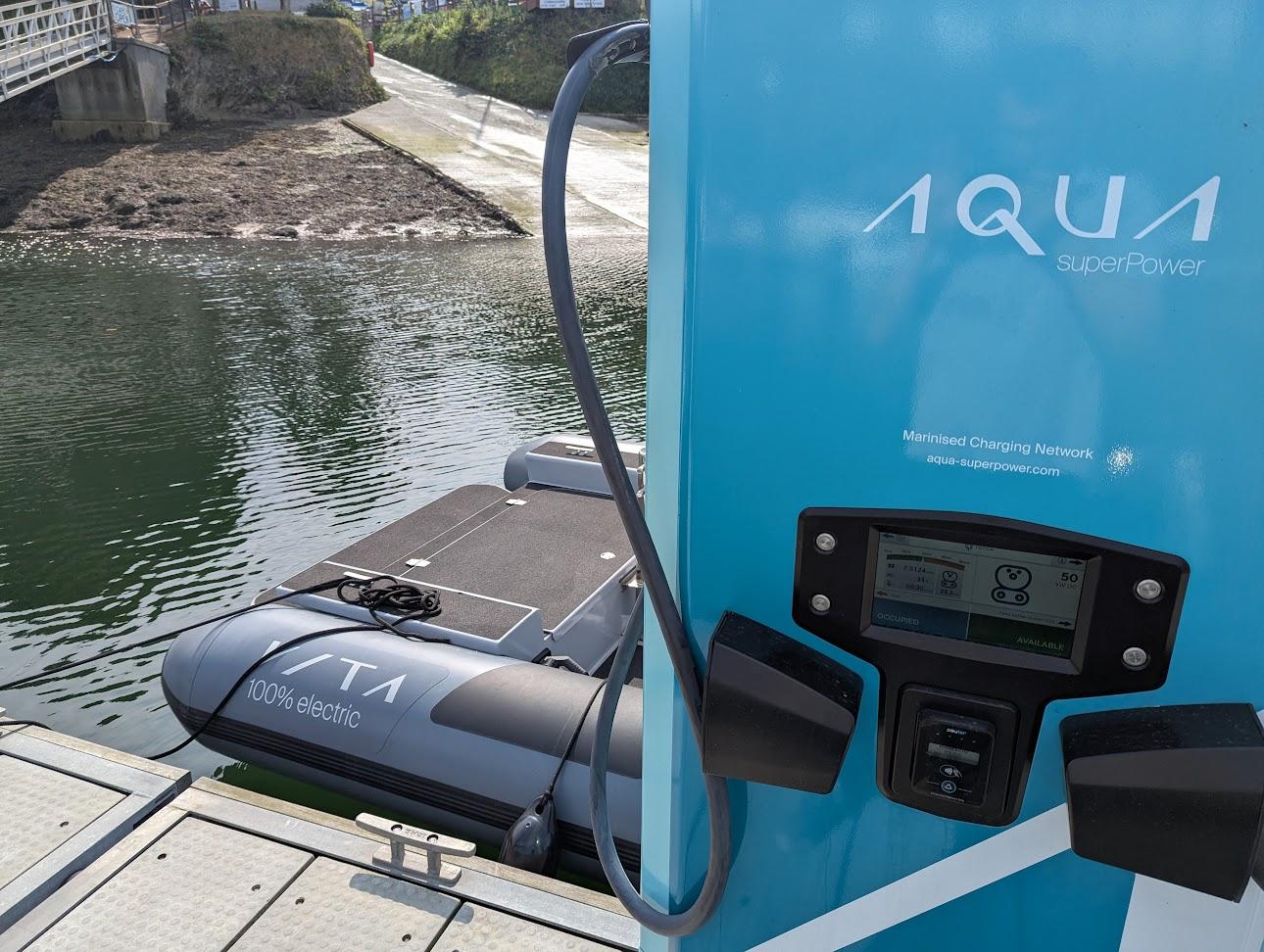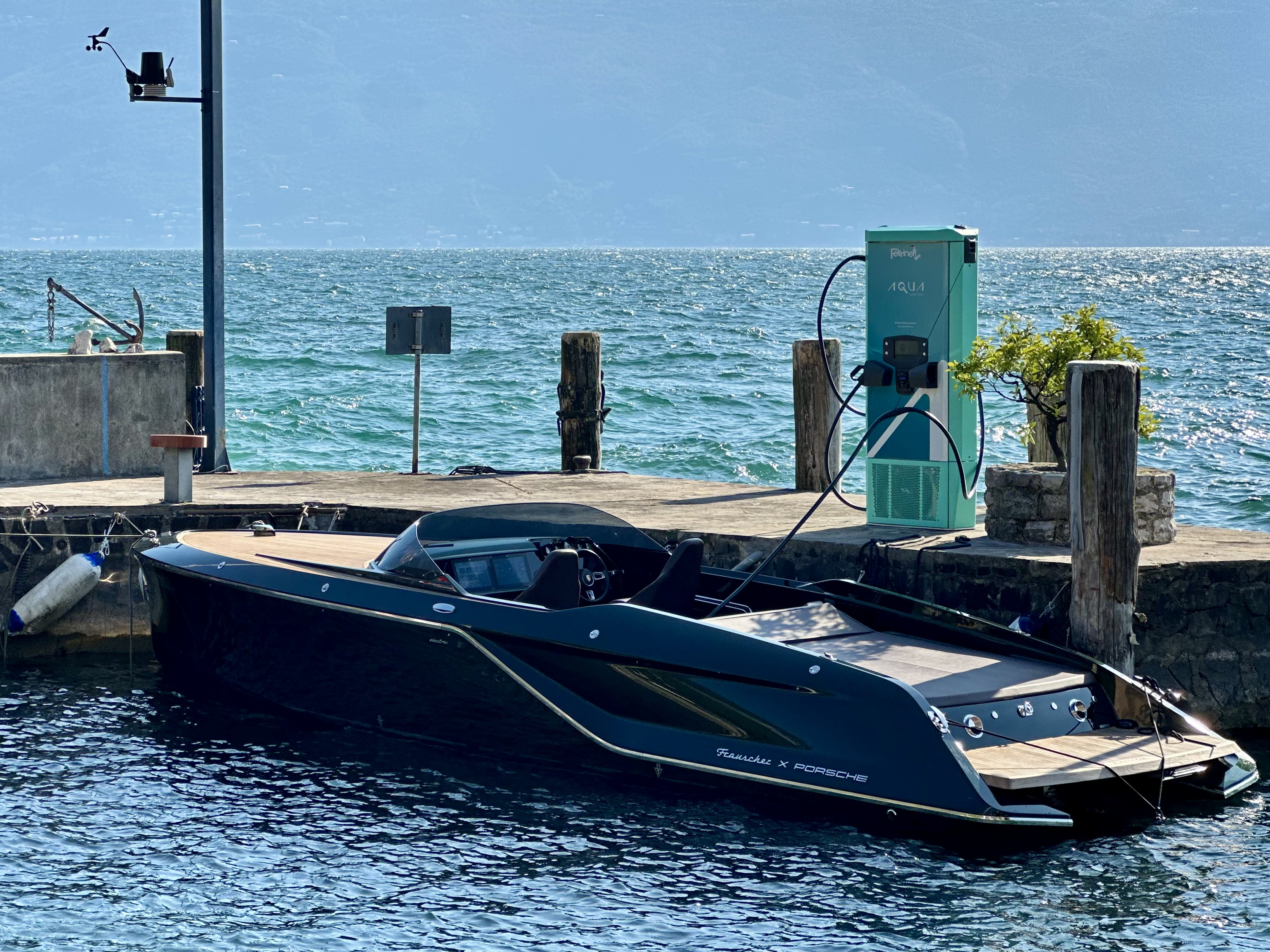The Public’s Interest in Electric Boating Has Never Been as High as Now

After a somewhat turbulent past few years - and thankfully now with the world’s boat shows all back up to full speed - the interest and excitement in electric boating has never been quite as high as it is right now.
After a two-year absence, this year’s boot Düsseldorf, for example, was probably the best edition that’s ever been held in the show’s long and successful history. With over1,500 exhibitors and 237,000 visitors from 100+ different countries, show-goers benefitted from 17 exhibition halls packed to the ceilings with latest offerings from around the world.
It was nine days of pure bliss for anyone interested in water sports, diving, sailing, motorboating, chartering, and, of course, anything to do with marine ecology and the well-being of the world’s oceans.
Without doubt, an area of interest that is standing head and shoulders above others at boat shows right now, is the electrification of boats, of all types, sail and power included.
Whether it was the unveiling of new electric boats, new electric motors, or the announcement of electric-only marinas and harbours, electric ‘revelations’ of one kind or another, were in evidence, literally, everywhere at boot Düsseldorf.
Leading the charge, the European Boating Industry (EBI) trade lobby in Brussels is at the forefront of emphasising the importance of sustainability for water sports. And this year’s new ‘Blue Innovation Dock’ sustainability forum, for example, organised at boot Düsseldorf, brought together many of the world’s marine policy decision makers for high-level discussion and exchange of ideas.
As a forum destined to become increasingly more relevant in the future, the Blue Innovation Dock’s mission will be to stimulate discussion and create common policies among industry stakeholders for the development of sustainable materials, environmentally friendly marinas, and ‘clean’ energy solutions for the transition to low and zero-emission propulsion and fuels.
Another sure sign of the increasing confidence and growing importance, the marine market is placing upon electric boating was evidenced, recently, when Evoy announced a collaborative agreement with large volume boat manufacturer, Nimbus Group from Sweden, to evaluate and develop the possibility of electric drivetrains between them.
‘And why was this so important?’ you may well ask, and the reason is that when a large, well known, volume producer of boats, such as Nimbus Group gets involved, then it’s a sure sign that electric boating is being seen as far more mainstream, and far less of an after-thought, as it might have been seen previously.
Not only for tech geeks, adrenalin junkies, or those with extra deep pockets, in the not-too-distant future, we believe the benefits of electric boating will be something that everyone in boating can enjoy and firmly take part in.
If the transition is to happen sooner rather later, the industry must find areas of agreement and common ground.
A good example is the universal electric vehicle Combined Charging System (CCS), which uses connectors to provide power up to 350 kilowatts. As one of Aqua superPower’s strategic partners, Evoy has signed up to this system for charging the batteries that drive their high-output inboard and outboard marine electric motors.
Having a powerful and efficient electric motor on a boat is only half the story. Batteries need to be able to cope with different consumer demand, and the need for a safe and reliable charging infrastructure is an equally important driver of the market.
Research has shown the great majority of leisure boats in the 20ft to 50ft size category, are rarely used for more than 25 nautical miles in a typical day. But boaters need to know they can travel out safely with enough energy reserves to cope with unexpected and unforeseen elements that occasionally arise.
Constantly evolving technology means that automotive and marine motor batteries are getting more energy dense every year, with improvements, typically, 5-10% per year. Prices are gradually decreasing, such that boaters are now starting to see more kWh from their batteries, with less weight and less volume, for the same cost.
Based upon Evoy’s 63kWh lithium-ion battery in a double battery pack configuration, a15 to 30 nautical miles range is possible at typical 20 to 30 knots cruising speed, and that suggests that many leisure boat users will find exactly what they need from what’s already out there and available.





%20(4).jpg)